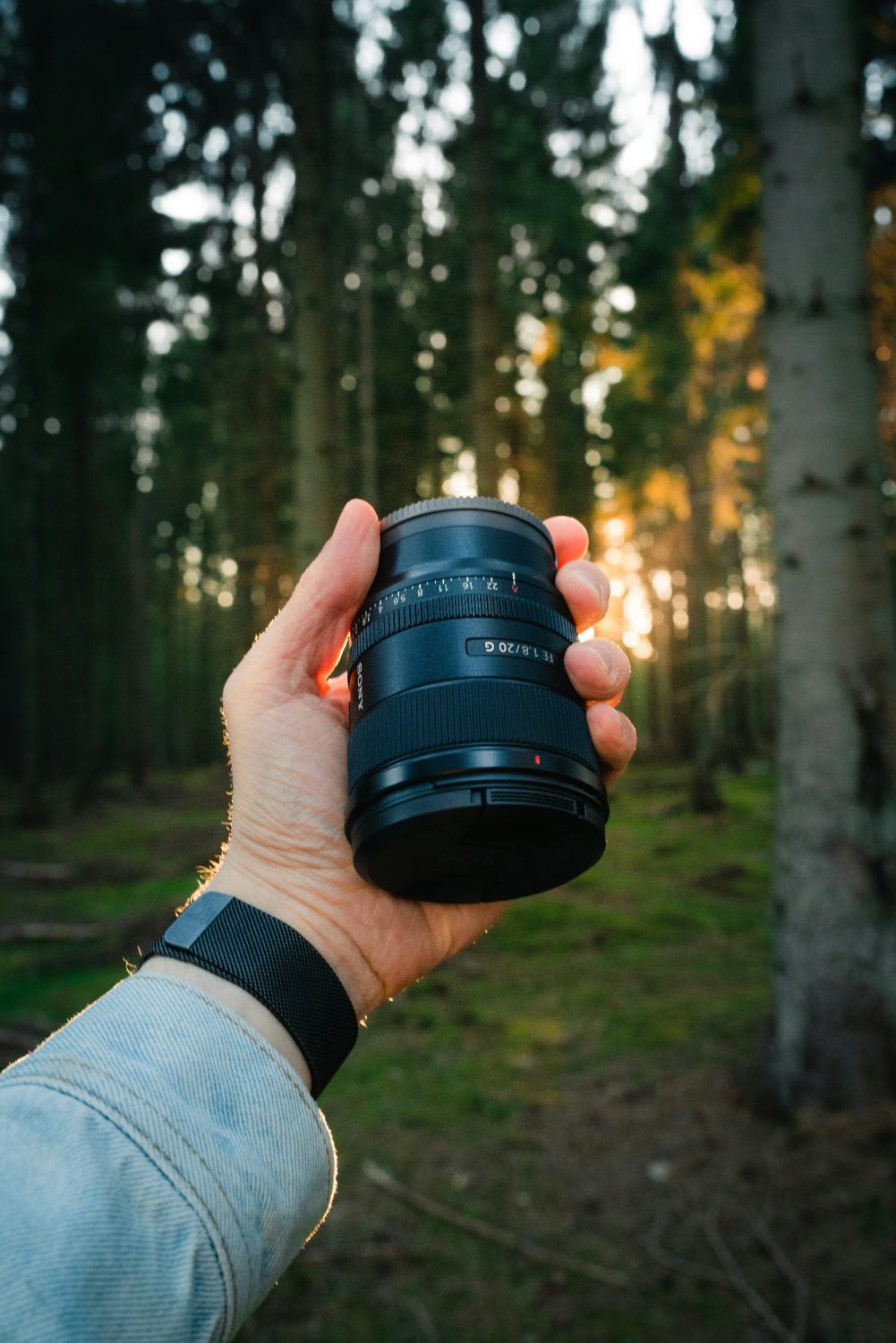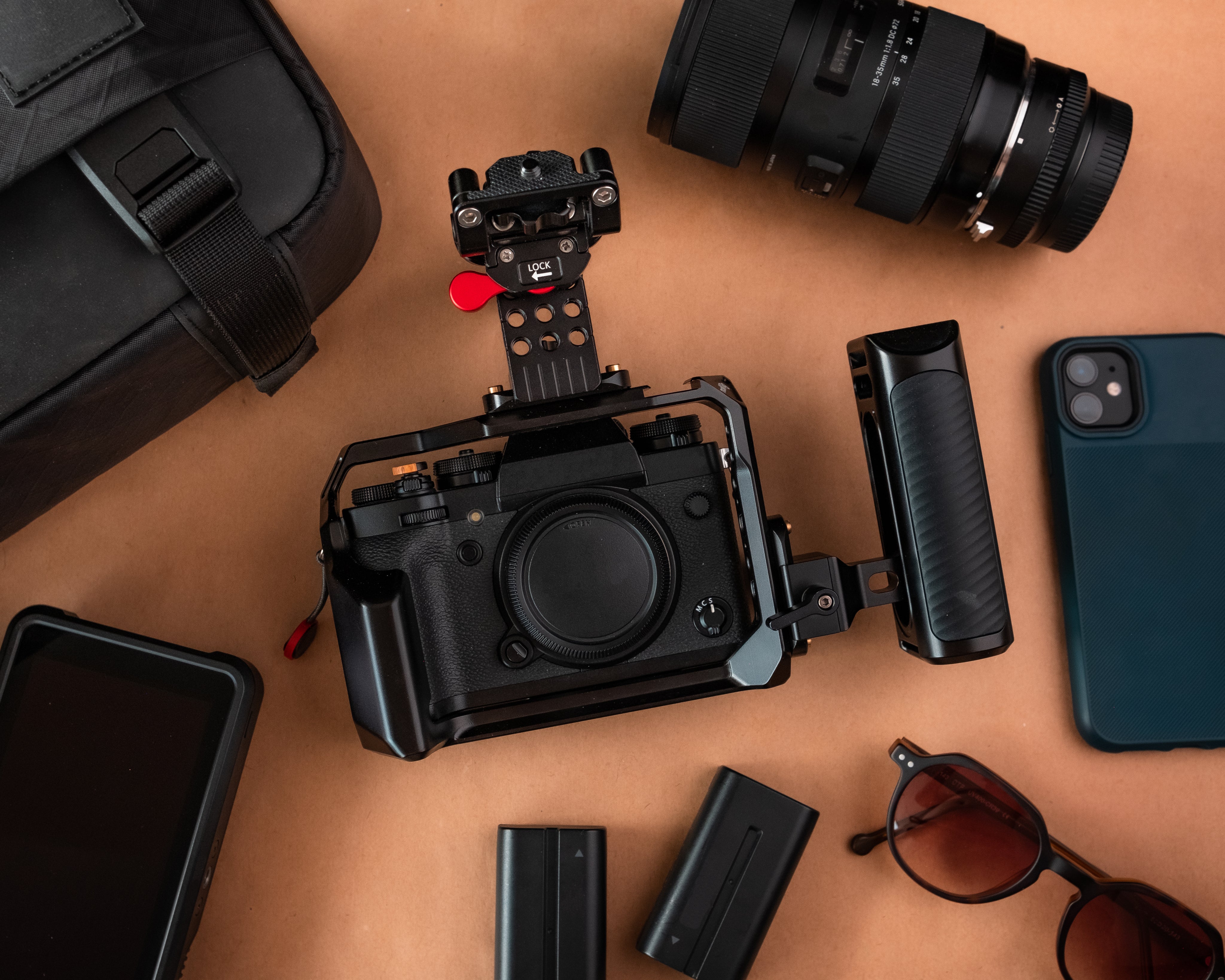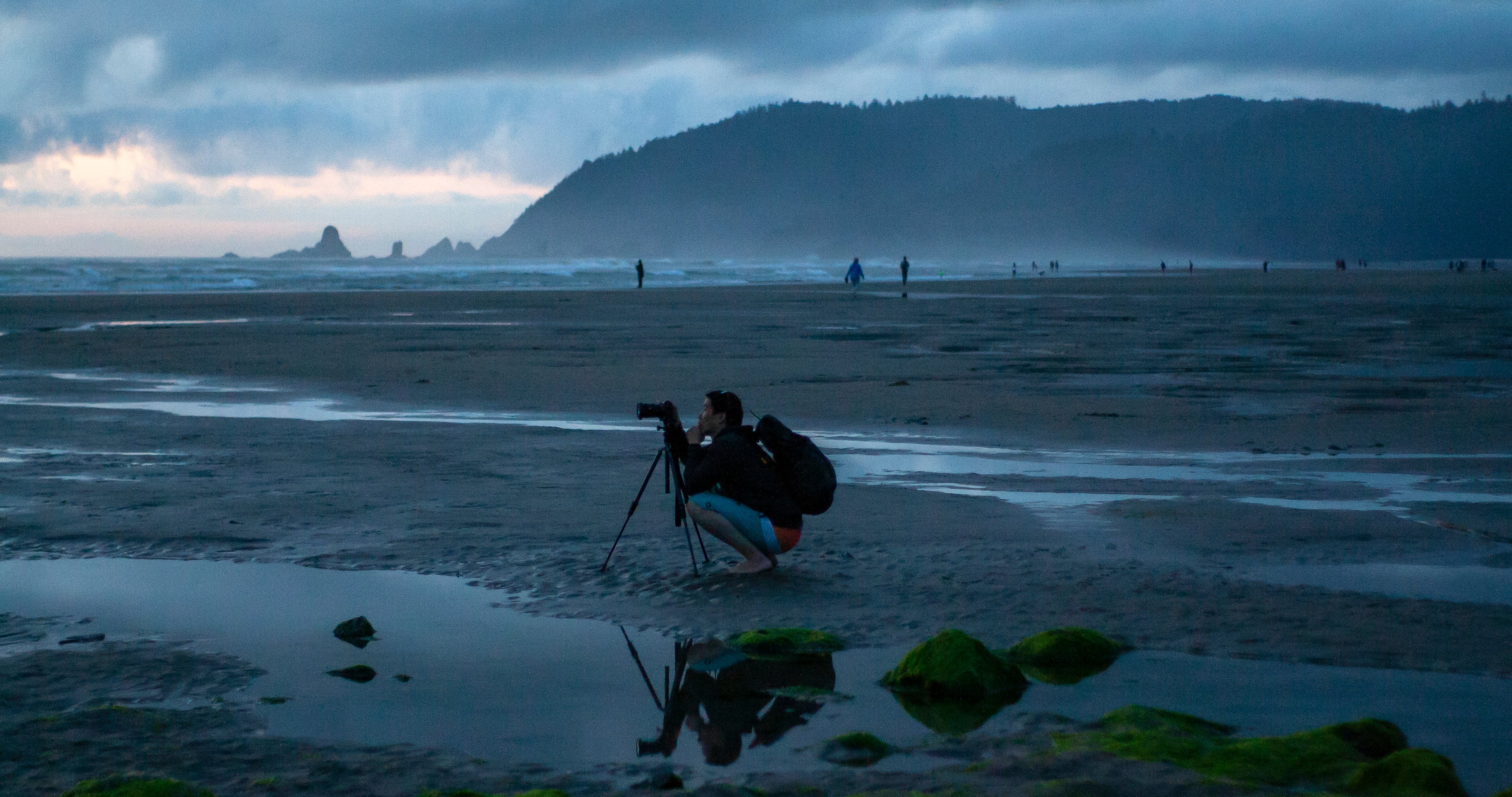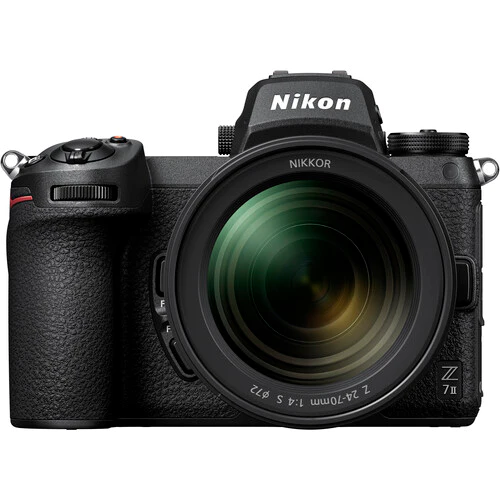
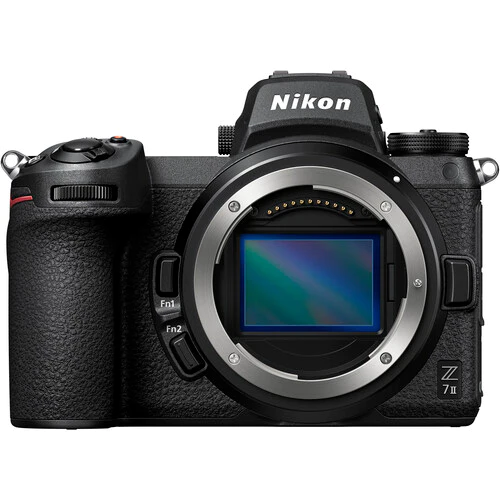




Nikon
Nikon Z7 II Mirrorless Digital Camera with 24-70mm f/4 Lens
Nikon Z7 II Mirrorless Digital Camera with 24-70mm f/4 Lens
KAMERAZ
Kameraz, Stonemill Office Park
Darrenwood
Johannesburg
Gauteng
2195
South Africa
Choose options
- 45.7MP FX-Format BSI CMOS Sensor
- Dual EXPEED 6 Image Processors
- UHD 4K60 Video; N-Log & 10-Bit HDMI Out
- 10 fps Cont. Shooting, ISO 64-25600
Improved processing, greater versatility, but familiar in design, the Nikon Z 7II takes everything that was great from the original and ups its capabilities even more. Sporting a high-resolution 45.7MP FX-format BSI CMOS sensor and dual EXPEED 6 image processors, the Z 7II is clearly aimed at the detail-obsessed image-maker.
The sensor's design omits the optical low-pass filter for greater detail recording capability and the sensor supports a native sensitivity range down to ISO 64 for lush, rich capture. Updated processing also yields faster speeds, including a quickened 10 fps continuous shooting rate and deeper buffer for working with moving subjects. UHD 4K 60p video is supported, too, with the option to record externally in 10-bit using N-Log or HLG (HDR) modes). The sensor also incorporates a 493-point phase-detection AF system, which now supports Eye-Detect AF in Wide-Area AF modes and during movie recording, and permits focusing in low-light down to -4.5 EV. Additionally, 5-axis in-body Vibration Reduction helps to reduce the appearance of camera shake with any mounted lens.
Balancing the imaging, the Z 7II retains its overall physical design, however it has been updated with a new dual memory card slot interface to hold one CFexpress Type B card and one SD UHS-II card for more flexible storage. Both a high-res 3.6m-dot OLED EVF and rear 3.2" 2.1m-dot tilting touchscreen LCD lend versatility to image composition and playback, and SnapBridge wireless connectivity can be used for remote camera control, image sharing to a mobile device, and even over-the-air firmware updates.
Second Generation Z
- Dual EXPEED 6 image processors offer increased buffer performance, a faster 10 fps continuous shooting rate, and noticeably reduced blackout times in the viewfinder.
- Updated autofocus now includes Eye and Face Detection for both humans and animals in the Wide-Area AF mode, for both photo and video recording.
- Timed long exposure shooting is now possible for up to 900 seconds (15 minutes) without the need of an external remote.
- Dual memory card slots offer more flexible file storage capabilities; one CFexpress Type B and one SD UHS-II slot permit overflow, segregated, and repetitive saving options.
- USB Type-C port permits in-camera charging or continuous power for on-the-go charging or extended shooting times.
- The rotation direction of the focus ring on lenses can be switched to suit one's familiarity.
- Support for HDR (HLG) mode when recording externally gives instant HDR-suitable video files for immediate playback. N-Log is also available for enhanced control during post-production and grading, too.
- Eligible for an optional ProRes RAW upgrade, enabling the camera to output ProRes RAW footage to a compatible Atomos external recorder. This upgrade provides greater color grading flexibility with the ProRes codec along with the ability to output uncompressed 12-bit raw footage over HDMI. This upgrade will be available in early 2021.
- The SnapBridge wireless connectivity can be used to update the camera's firmware, instead of relying on a memory card-based system of updating.
- Updated creative shooting modes include Multiple Exposure, 20 different Picture Control settings, and in-camera Timelapse recording. There is also a Focus Shift mode for recording up to 300 sequential frames with the focus position shifted between exposures for focus stacking applications.
- Compatible with optional MB-N11 Power Battery Pack for additional battery life and improved handling.
45.7MP FX-Format BSI CMOS Sensor and Dual EXPEED 6 Processors
UHD 4K Video Recording
Advanced video functionalities have been added with the Z 7II, including the N-Log gamma for capturing flat-looking footage that maximizes dynamic range and HLG (HDR) for recording HDR-ready footage. Other additions are the ability to output high-quality 10-bit data over HDMI and an Electronic VR function for smooth handheld shooting. Focus Peaking can be used to benefit manual focus control and a Zebra Stripes option is also available to help detect over-exposed areas within the frame. Audio recording can be handled using the built-in stereo microphone or an optional external mic can be added via the 3.5mm stereo jack for greater control over quality, and live monitoring is possible via the headphone jack.
493-Point Phase-Detect AF System
Vibration Reduction
Body Design
- A large 3.2" 2.1m-dot LCD screen is available for bright, clear, and vivid image playback and live view shooting. The screen has a tilting design to benefit working from both high and low angles, and it is also a touchscreen for more intuitive operation, navigation, and settings control.
- A 3.6m-dot OLED electronic finder is present for comfortable eye-level viewing. It has a high 0.80x magnification and uses NIKKOR optics to guarantee a sharp, clear image. The finder also has a fluorine coating for easier cleaning.
- The top panel of the Z 7II is configured with a dot-matrix OLED. This low-energy display provides quick access to important camera settings.
- Configured with one CFexpress Type B/XQD memory card slot and one UHS-II SD card slot, flexible file storage is possible with the option to use repetitive, overflow, or segregated storage methods.
- A robust magnesium alloy chassis is both dust- and weather-resistant to benefit working in harsh climates and inclement conditions.
- The ergonomic grip and overall form factor is shaped to benefit handling for extended periods of time and is further accentuated by an anti-slip material and a joystick for seamless settings and focus point selection.
- Built-in SnapBridge connectivity to enable seamless transfer of low-resolution imagery as well as remote shooting capabilities. BLE (Bluetooth Low Energy) and Wi-Fi enables communication between the camera and a smart device and, additionally, the mobile device can remotely trigger the shutter and display a live view image from the camera to enable working from a distance. Additionally, SnapBridge can also be used as an easier method of updating the camera's firmware.
NIKKOR Z 24-70mm f/4 S Lens

